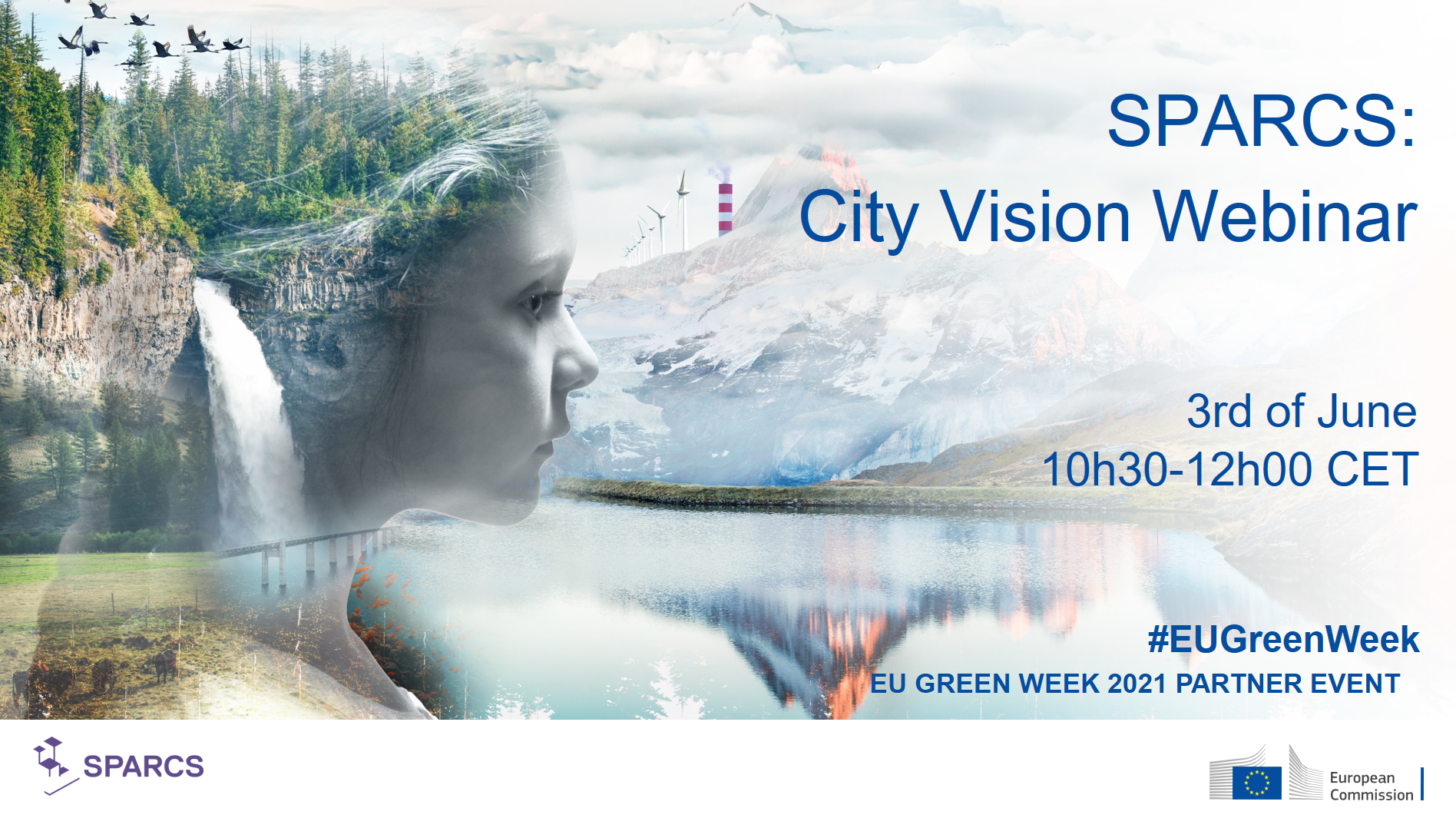SPARCS cities share their vision for the future
Participants in the SPARCS City Vision webinar, which took place on 3 June in partnership with EU Green Week, had the opportunity to learn more about City Vision development in SPARCS, with a particular focus on the cities of Espoo, Kladno and Kifissia.
After a short SPARCS presentation by the moderator, Francisco Melo (SPI), Annamaria Riemer from the Fraunhofer Centre for International Management presented the SPARCS City Vision Methodology. In particular, Annamaria showed how the visioning exercise is part of a bigger urban transformation strategy.
Soon after, Jani Tartia, from Espoo’s sustainable development team, presented the City Vision process in Espoo, one of SPARCS’ Lighthouse Cities. The Finnish city has set itself the goal of becoming carbon neutral by 2030 and achieving the UN Agenda 2030 Sustainable Development Goals (SDGs) by 2025. Espoo managed to lay out its vision for 2050 despite the challenges created by COVID-19 and organised a co-creation workshop as part of the process to develop their City Vision.
After Espoo, it was the turn of David Škorňa from Kladno to present the City Vision process in his city. In Kladno, City Vision is an ongoing process of co-creation with key links to the city’s strategies and based on a strong and broad partnership. The vision in this Czech city is being constructed as a living mechanism – a dynamic vehicle showing continuous progress in the city. For instance, one priority is the revitalisation and modernisation of Kladno in terms of energy and mobility policies. David Škorňa also presented the Action Plan (SECAP) 2030-2050 currently being reviewed by the City Council.
The final presentation at the webinar was from Kfissia and delivered by Artemis Giavasoglou, project manager for SPARCS at the Municipality of Kifissia. After a brief presentation on the city, Artemis explained that citizens and technical stakeholders participated in defining the City Vision. As part of a two-day workshop held despite COVID-19 restrictions, Kifissia managed to travel to the future and co-create the various City Vision challenges before entering into the vision statements process, tackling key strategic areas such as mobility, the energy consumption of buildings, green energy, urban planning, digital/smart city and citizen awareness/engagement.
The webinar ended with a lively Q&A session with the audience.

